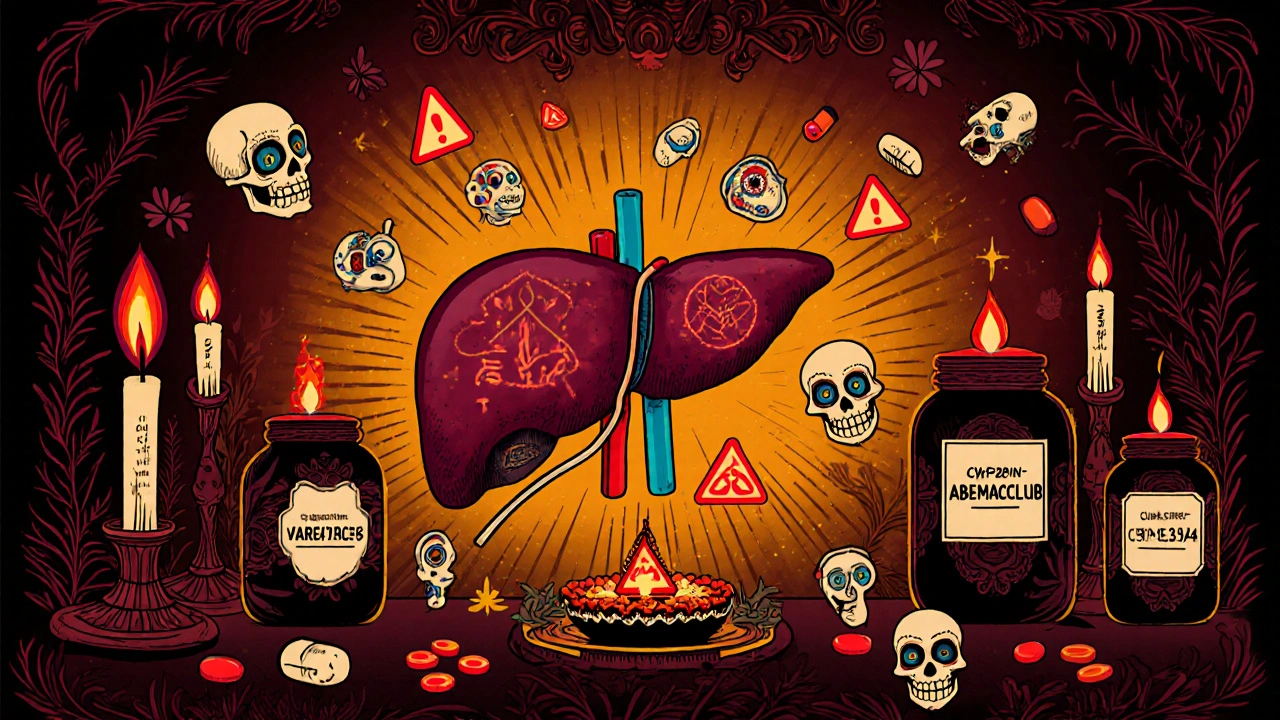
Quercetin Medication Interaction Checker
This tool helps you understand if quercetin supplements might interact dangerously with your medications. Based on research, quercetin inhibits key liver enzymes (CYP450) that process many prescription drugs, potentially causing serious health risks.
Select medications to see interaction risks
Many people take quercetin supplements hoping to reduce inflammation, boost immunity, or fight allergies. But what they don’t realize is that this common flavonoid can quietly change how your medications work-sometimes with dangerous results. If you’re on any prescription drug, especially blood thinners, heart meds, or cancer treatments, taking quercetin could be putting your health at risk.
What Quercetin Actually Does to Your Liver
Quercetin isn’t just a plant pigment. It’s a powerful inhibitor of enzymes in your liver and gut that break down drugs. These enzymes, part of the CYP450 family, are your body’s main way of clearing medications out of your system. When they’re slowed down, drugs build up in your bloodstream. That’s not a bonus-it’s a red flag.
Studies show quercetin strongly blocks CYP2D6 and CYP2C19, and moderately inhibits CYP3A4. These are the same enzymes that process over 50% of all prescription drugs. For example, if you take a drug like abemaciclib (used for breast cancer), quercetin can raise its blood levels by 25-35%. That might sound like a good thing, but it can push you into toxic territory. The same goes for acenocoumarol, a blood thinner, where quercetin can spike INR levels by 0.8 to 1.5 points-enough to cause internal bleeding.
It’s Not Just the Liver-Your Gut Is Involved Too
Most people assume drug interactions happen in the liver. But quercetin hits you first in the gut. When you swallow a supplement, it hits the intestinal wall before it even reaches your bloodstream. That’s where CYP3A4 is most concentrated. Quercetin shuts down this enzyme right at the source, meaning more of your drug gets absorbed than it should.
Think of it like this: your body is trying to filter out a drug, but quercetin puts a cork in the drain. That’s why even low doses of quercetin can cause big spikes in drug levels. A rat study showed midazolam (a sedative metabolized by CYP3A4) had a 2.3-fold increase in blood concentration when given with quercetin. That’s not a lab quirk-it’s a real risk for humans.
Which Medications Are Most at Risk?
Some drugs are fine with quercetin. Others? Not even close. Here’s who should avoid it entirely:
- Warfarin and other blood thinners - Quercetin increases bleeding risk by interfering with metabolism and platelet function.
- Cyclosporine and tacrolimus - Used after organ transplants. Even a 30-50% rise in levels can cause kidney damage or nerve toxicity.
- Abemaciclib, abrocitinib - Cancer and autoimmune drugs with narrow safety margins. Small increases can lead to severe side effects like low white blood cells or liver failure.
- Statins like simvastatin - Quercetin can raise muscle damage risk (rhabdomyolysis) by slowing their breakdown.
- Direct oral anticoagulants (DOACs) - Apixaban and rivaroxaban levels can rise 20-35% due to transporter inhibition, not just enzyme effects.
- Antidepressants like sertraline or fluoxetine - These are metabolized by CYP2D6, which quercetin shuts down hard.
Even acetaminophen (Tylenol) isn’t safe. Studies show its levels can jump 20-30% with quercetin use. That’s not a problem for occasional use-but if you’re taking it daily for arthritis, you’re increasing your risk of liver injury.
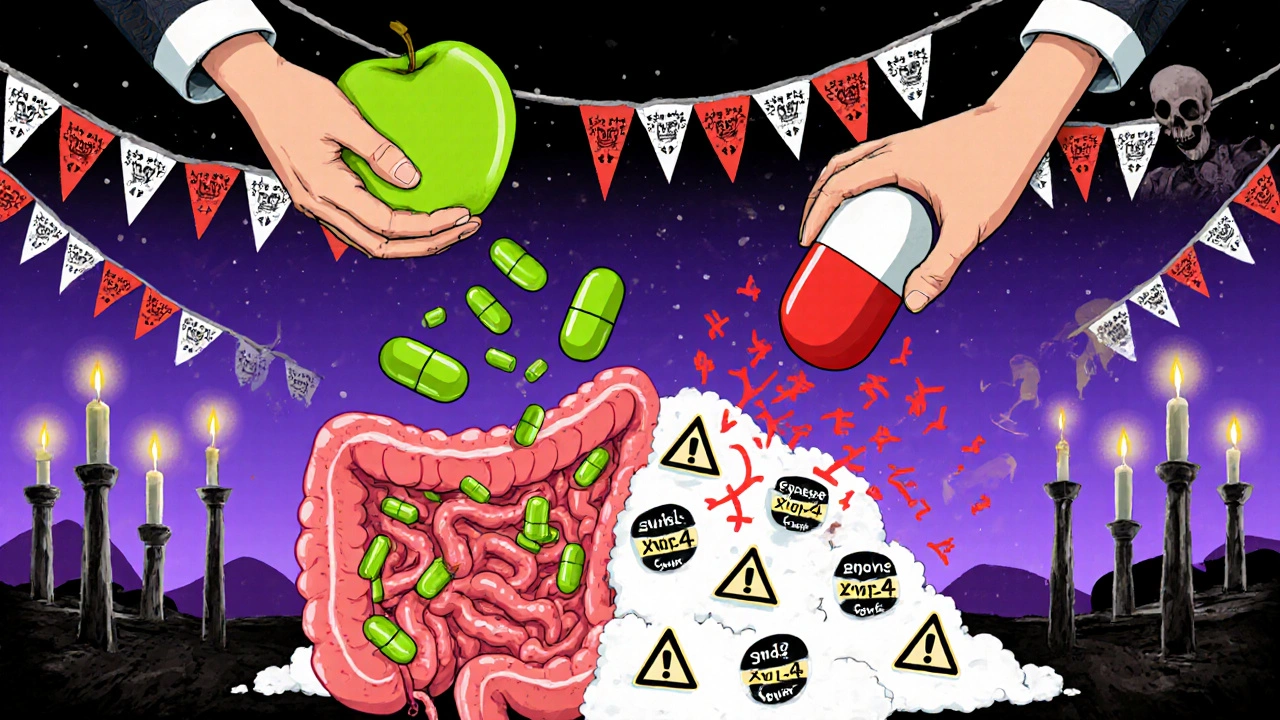
Food vs. Supplements: Big Difference
Don’t panic if you eat apples, onions, or broccoli. Those foods contain quercetin, but in tiny amounts-usually under 25 mg per serving. Your body processes that slowly, and the quercetin is bound to sugar molecules (glycosides), which are much weaker inhibitors.
Supplements are a different story. A single capsule can contain 500 mg or more. That’s 20 times more than you’d get from a whole day of healthy eating. And here’s the kicker: the form matters. Supplements use aglycone quercetin-the pure, unbound version that’s 60-70% more potent at blocking enzymes than the glycoside form found in food.
So yes, you can safely eat your kale. But popping a quercetin pill? That’s a pharmacological intervention. And like any drug, it needs to be treated with caution.
Who’s Most at Risk?
It’s not just about what you take-it’s about who you are.
- People over 65 - Your liver and kidneys clear quercetin 25-40% slower. That means it hangs around longer, increasing interaction risk.
- People on multiple meds - If you’re taking five or more drugs, the chance of a bad interaction skyrockets. Quercetin doesn’t just affect one pathway-it hits CYP2D6, CYP3A4, CYP2C19, and transporters like OATP1B1 and BCRP. That’s a perfect storm for polypharmacy.
- People with liver or kidney disease - If your organs are already struggling, adding a metabolic blocker like quercetin can push you over the edge.
- Cancer patients - Many chemo drugs have a razor-thin safety window. Quercetin can turn a safe dose into a toxic one.
The FDA has documented 147 cases of suspected quercetin-drug interactions between 2015 and 2022. Experts believe that’s less than 5% of the real number. Most people don’t tell their doctors they’re taking supplements. And most doctors don’t ask.
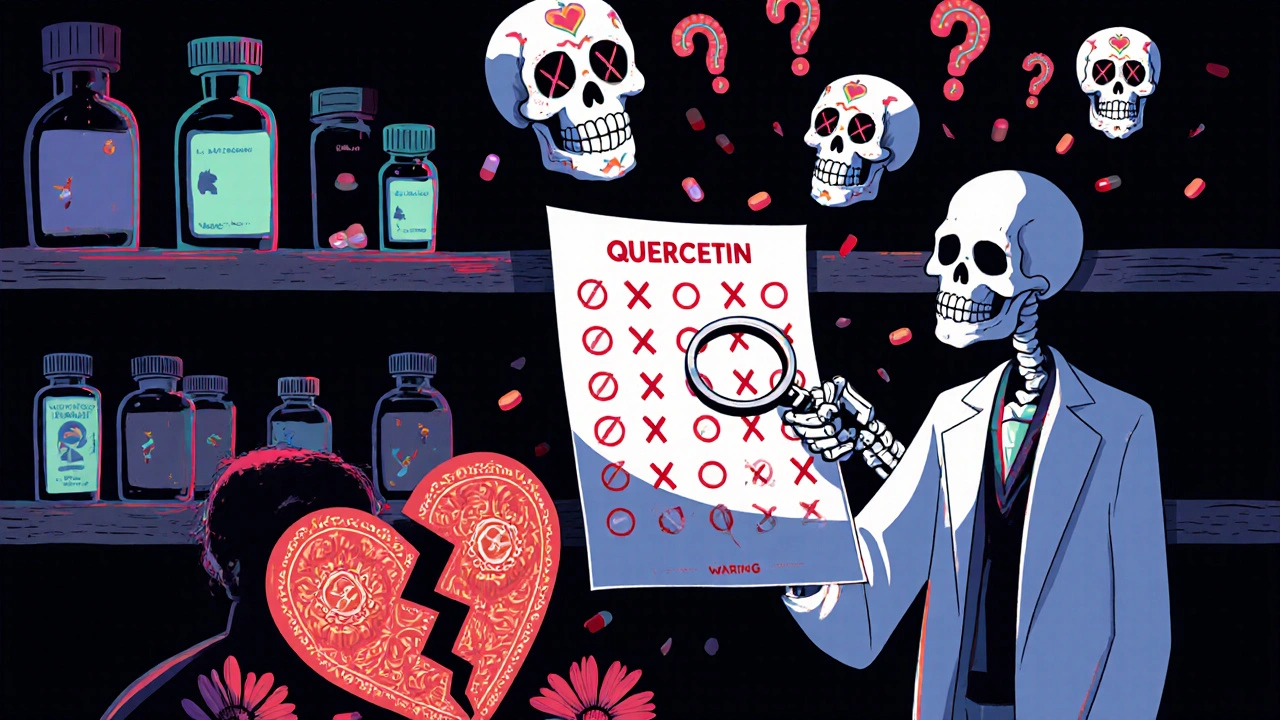
What Should You Do?
If you’re on any prescription medication and you’re taking quercetin:
- Stop the supplement immediately. Don’t wait for symptoms. The damage can be silent until it’s too late.
- Talk to your pharmacist. They have access to drug interaction databases and can check your exact meds against quercetin. Bring your bottle with you.
- Don’t restart without medical approval. Even if you feel fine, the interaction may still be happening.
- If you must take it (and your doctor says it’s okay), keep the dose under 250 mg per day and take it at least 6 hours apart from your meds.
There’s no safe middle ground. If you’re taking more than 500 mg a day, you’re in the danger zone. The European Food Safety Authority says doses above 1,000 mg/day pose clear risks. And in 2021, a study in the Journal of Clinical Pharmacology showed that spacing quercetin and meds by 4-6 hours cuts interaction risk by 30-50%. That’s helpful-but not enough to make it safe.
The Bigger Picture: Supplements Aren’t Regulated Like Drugs
Quercetin is sold as a supplement, not a drug. That means manufacturers don’t have to prove it’s safe before selling it. The FDA has issued 17 warning letters to quercetin brands since 2018 for making false claims about treating COVID or cancer. But the labels? Still say “natural” and “safe.”
Global sales hit $387 million in 2022. Over 18 million Americans take it. Nearly half of them take more than 500 mg a day. That’s not a health trend-it’s a public health blind spot.
The FDA is finally waking up. A proposed 2024 rule would require supplement labels to warn about drug interactions. But until then, the burden is on you. Don’t assume natural means safe. Don’t assume your doctor knows. And don’t assume your supplement is harmless just because it’s on a shelf next to vitamins.
Can I take quercetin with my blood pressure medication?
Maybe, but only if your doctor approves it. Quercetin can interfere with drugs like amlodipine and verapamil, which are metabolized by CYP3A4. It can raise their levels, leading to dizziness, low heart rate, or even fainting. If you’re on blood pressure meds, avoid quercetin supplements unless your provider checks your levels and adjusts your dose.
Is quercetin safe with antidepressants?
No, not if you’re taking SSRIs or SNRIs like sertraline, fluoxetine, or venlafaxine. Quercetin strongly inhibits CYP2D6, the main enzyme that breaks down these drugs. This can cause serotonin syndrome-a potentially life-threatening condition with symptoms like agitation, rapid heart rate, high fever, and confusion. Stop quercetin if you’re on these meds.
Does cooking destroy quercetin in food?
Not significantly. Quercetin in foods like onions, apples, and capers is stable under normal cooking. Boiling or baking may reduce levels by 10-20%, but you’re still getting enough to be beneficial without the risk. The danger comes from concentrated supplements, not your dinner.
How long does quercetin stay in my system?
Quercetin and its metabolites can linger for up to 24-48 hours, especially in older adults or those with liver issues. That’s why spacing doses apart by just a few hours isn’t always enough. If you’re on a drug with a long half-life-like warfarin or cyclosporine-it’s safer to avoid quercetin entirely.
Are there any supplements that are safer than quercetin?
Yes. Vitamin C, magnesium, and omega-3s have minimal interaction risk with medications. If you’re looking for anti-inflammatory support, consider curcumin (from turmeric), but even that can interact with blood thinners. Always check with your pharmacist before starting any new supplement-even if it’s labeled “natural.”
Final Thought: Natural Doesn’t Mean Harmless
Quercetin isn’t evil. It’s a plant compound with real benefits. But when you take it in pill form at high doses, you’re no longer eating food-you’re taking medicine. And medicine, no matter how natural, can hurt you if you don’t use it wisely.
If you’re on any prescription drug, don’t guess. Don’t assume. Ask your pharmacist. Show them your bottle. Get it in writing. Your life might depend on it.
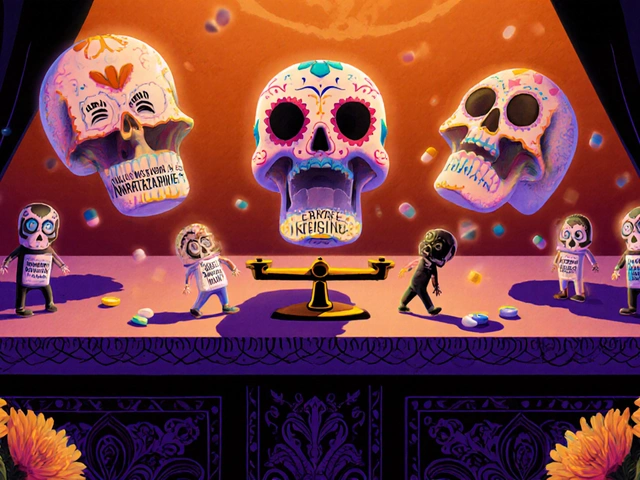
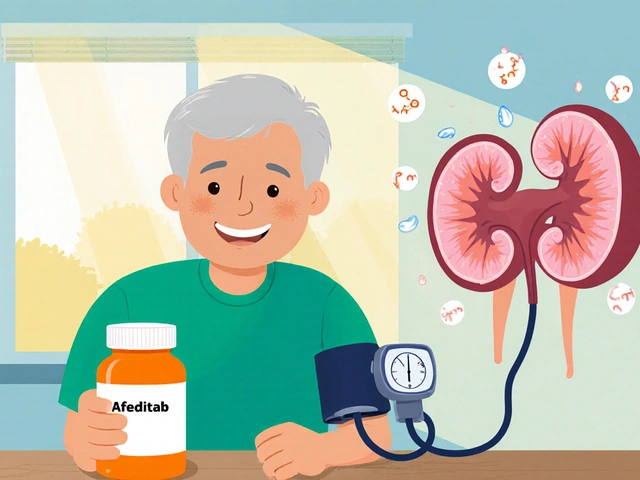
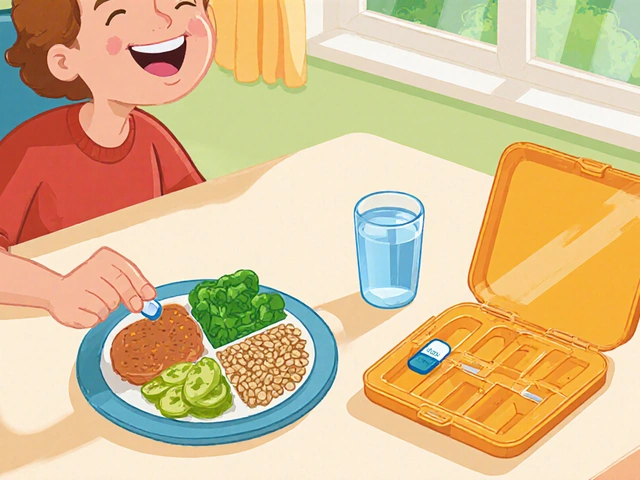
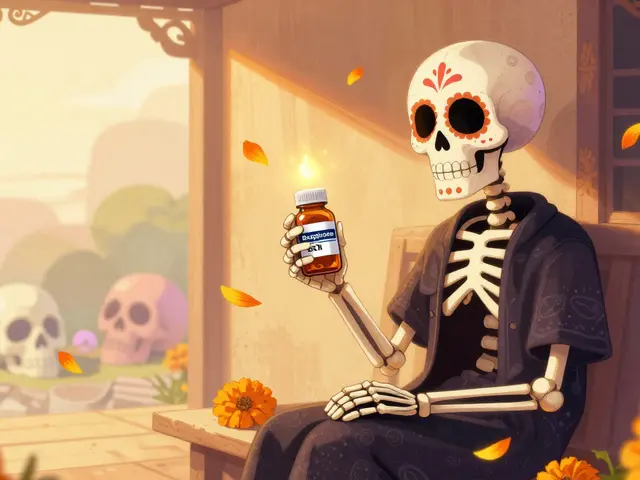
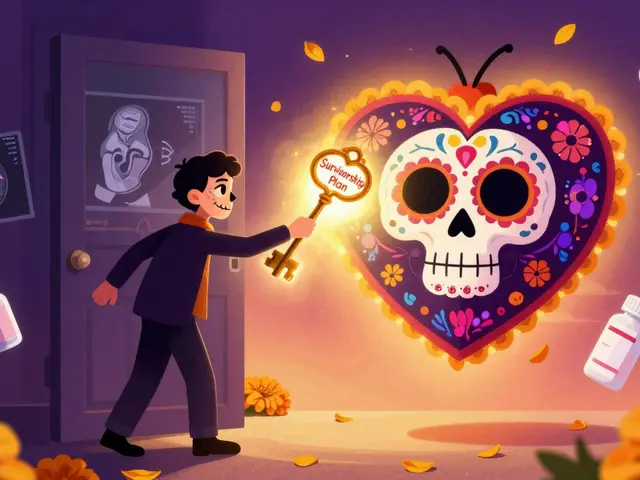
There are 11 Comments
Jessica Correa
I took quercetin for months thinking it was just a superfood pill and now I'm terrified I messed up my blood pressure med. My doctor never asked about supplements and I never thought to mention it. I'm stopping today.
manish chaturvedi
In India, we have a long tradition of herbal remedies, but this post is a sobering reminder that nature does not equal safety. Many elderly patients here take turmeric and quercetin alongside warfarin, unaware of the risks. We must educate communities, not just prescribe.
Nikhil Chaurasia
I read this and immediately thought of my uncle. He was on tacrolimus after his transplant, took quercetin for 'immune support,' and ended up in the hospital with kidney failure. They didn't even know why until his niece found the supplement bottle. This isn't theoretical-it's family tragedy waiting to happen.
Justin Daniel
So let me get this straight-eating an onion is chill, but swallowing a 500mg capsule is basically self-administering a drug interaction grenade? And we call this 'natural health'? I need a medal for not laughing while reading this.
Melvina Zelee
omg i just realized i’ve been taking this with my zoloft for months… i thought it was helping my anxiety but now i’m worried i’m one step away from serotonin syndrome. i’m deleting my amazon cart rn. thanks for the wake up call
steve o'connor
As someone who works in pharmacy, I see this every week. Patients don’t think supplements count as ‘meds.’ They say, ‘It’s just a pill from the health store.’ But the science doesn’t care where you bought it. The interaction still happens. We need better labeling and mandatory counseling.
ann smith
Thank you for sharing this so clearly. 💙 If you’re on meds, please talk to your pharmacist before adding anything-even if it’s ‘just quercetin.’ Your life matters more than any trend. You’re not alone in this.
Robin Johnson
Stop scrolling. Stop buying. Stop assuming. If you’re on more than one prescription, you’re not a biohacker-you’re a walking pharmacology experiment. Get your meds checked by a professional, not a YouTube influencer.
Mark Williams
Quercetin’s inhibition profile is complex: CYP2D6 IC50 ~1.2 μM, CYP3A4 ~5.8 μM, and it also modulates P-gp and OATP1B1 transporters. The aglycone form has higher bioavailability than glycosides, leading to supra-physiological plasma concentrations. The 2.3-fold increase in midazolam AUC in rats translates to clinically significant CYP3A4 inhibition in humans. This isn’t anecdotal-it’s pharmacokinetic reality.
Ravi Kumar Gupta
You Americans think everything is dangerous. In India, we’ve eaten onions and apples for centuries. This is just fear-mongering by Big Pharma to sell more drugs. If you don’t trust your body, you’ll never be healthy.
Rahul Kanakarajan
Wow. So you’re telling me I shouldn’t take this supplement that I bought because it says ‘boosts immunity’ on the label? What a shocker. Next you’ll say smoking weed is bad for your lungs. Newsflash: nobody cares. I’ll take my 1000mg and my statin. Let the gods decide.
Write a comment
Your email address will not be published. Required fields are marked *